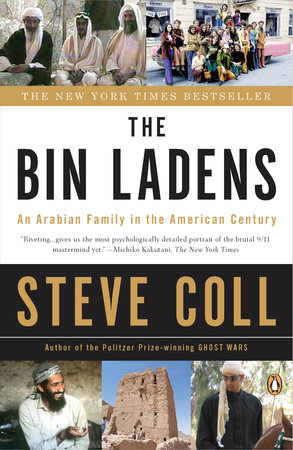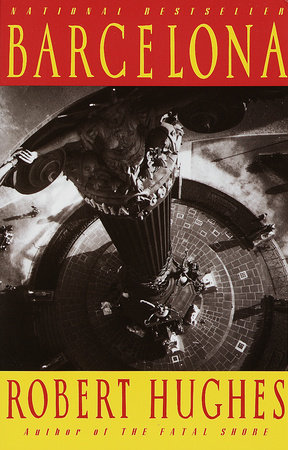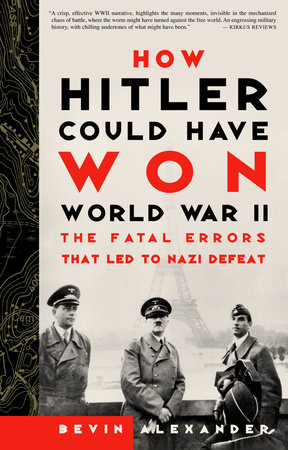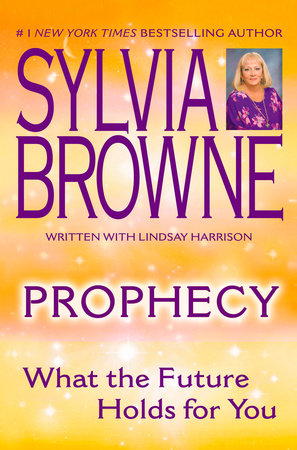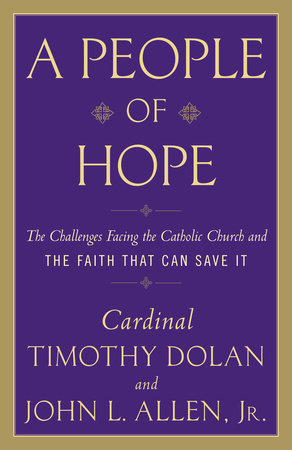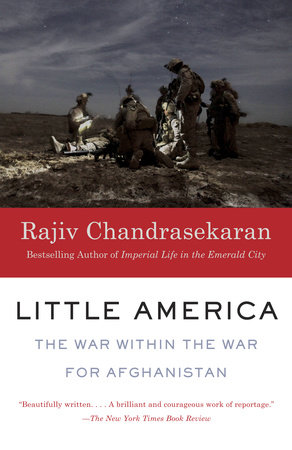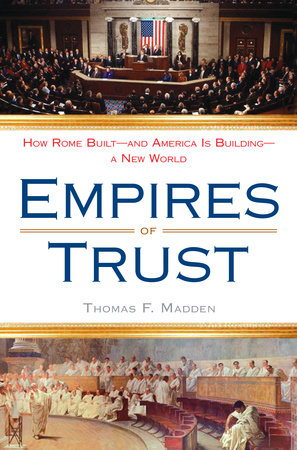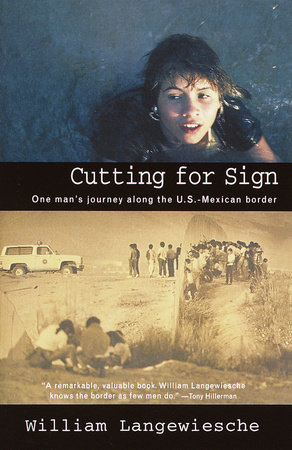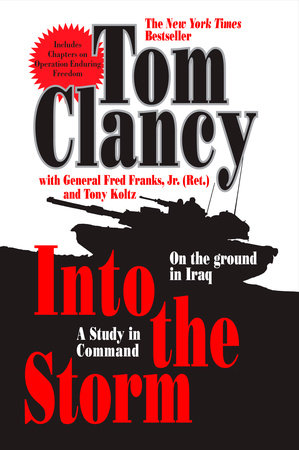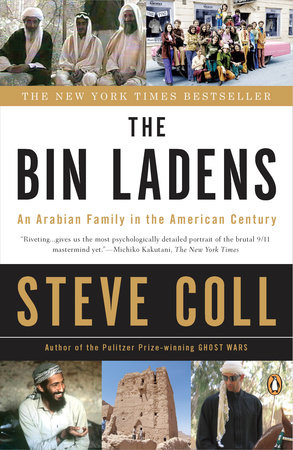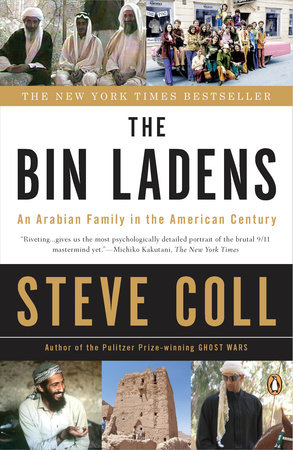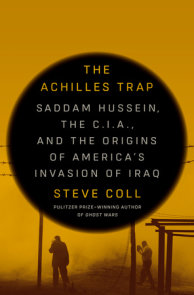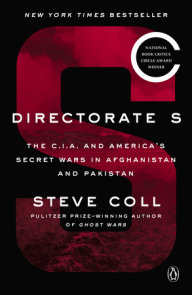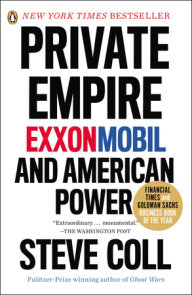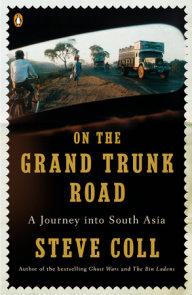Author Q&A
A Q&A with Steve Coll
In Ghost Wars, you explored the history of the CIA in Afghanistan up to September 11, 2001. What led you from that story to the story of the Bin Laden family?
Osama Bin Laden’s life and influences were an element of Ghost Wars, but I wrote about him in that book—and understood him—almost entirely as an ideologue and fighter in the Afghan wars. I felt frustrated after that project by how difficult it was to report and write about the complexity of modern Saudi Arabia, particularly about the competing pressures and temptations that shape so many lives in the kingdom. I hoped that writing about the entire Bin Laden family, in all of its diversity, across the century of the oil age, might offer a way to push past some of the clichés of greedy sheikhs and unbending Wahhabis that shape our vision of Saudi Arabia. I wanted to report in as much depth as possible about the fullness and contradictions of authentic Saudi lives, and about the contradictions within Osama’s generation of Bin Ladens—some of his brothers and sisters were fascinated by and enthusiastic about America, while he was repulsed. I thought such a narrative might also place Osama and the movement he seeks to lead in a different context—among other things, I hoped to pull him out of his cave and wrestle with him as a creature of modernity.
What will we learn about Osama Bin Laden that’s not been reported before?
This book tells the story of how Osama was converted to radical Islam in an after-school religious study group at his elite Jeddah prep school, where the students all wore grey slacks and blue blazers. It tells for the first time the story of Osama’s relationship and partnership with his pro-American brother Salem, who supported him during the Afghan war during the 1980s and sold him weapons. It tells for the first time how Osama traveled from Afghanistan to a Park Lane hotel in London to meet with German arms traders, a meeting organized by his secular brother Salem. It also describes the only known Americans Osama ever met, apart from journalists who later interviewed him—a motley crew of pilots, mechanics and rock and roll musicians who traveled around with Osama’s brother when he went to the Afghan frontier.
What was the extent of your access to the Bin Laden family and those close to them?
It’s a big family. Some parts of it were more cooperative than others. As is often true in the Middle East, it was often easier to talk with people informally than to interview them formally. The Bin Ladens still in Yemen were very welcoming and provided the first full account of the family tree and generational history; the section of the family based in Saudi Arabia formally answered some questions in writing, but was less cooperative. Nonetheless, I was fortunate to persuade many people in and around the family to speak for the first time, sometimes for the record. The Bin Ladens was fact-checked by a former New Yorker fact-checker now at the Washington Post, and it is carefully footnoted and transparent in regards to who agreed to speak about what, and under what ground rules.
Why will readers be interested in the Bin Ladens apart from an interest in Osama?
I found them to be endlessly fascinating, and of course, they are one of the most important families in Saudi Arabia. Their construction company has been the kingdom’s Halliburton, repeatedly involved in secretive and important defense contracting—that’s partly what led the Bin Ladens and Osama to Afghanistan in the first instance. They are the builders and renovators of the two most important cities in Islam, Mecca and Medina, and they offer an extraordinary narrative of achievement and sudden wealth—from famine in remote Yemen to a multi-billion-dollar fortune in just two generations. Like the Rockefellers or the Kennedys, they are emblematic of their age in the Arab world; theirs is a story of how the pressures of globalization unfolded inside a single privileged family, with consequences that changed the course of American history.
In what ways were the Bin Ladens influenced by American culture?
Mohamed Bin Laden, the family’s patriarch and the man who built its fortune, migrated to Saudi Arabia just before the Great Depression. He took many wives and ultimately fathered 54 children—Osama was one of his 25 sons. The generation to which Osama belonged came of age during the oil shocks of the 1970s, when American culture dominated young Saudi Arabia. The young Bin Ladens had enormous allowances—several hundred thousand tax-free dollars a year as far back as the 1970s—and it was America that dazzled them with temptation and possibility. America symbolized all that was modern, and in Saudi Arabia at that time, there was a pent-up, impatient hunger for modernity. The Bin Ladens were in the vanguard of these cultural changes, and were affected profoundly.
Tell us about the Bin Ladens and American real estate, and their involvements in Hollywood.
After Mohamed’s death in a plane crash in 1967, family leadership fell to his eldest son, Salem. He and some of his brothers began almost immediately to buy up American real estate—Salem had an estate near Disney World, an apartment in Manhattan, and other properties. He bought up adjoining lots near Orlando so many of his brothers and sisters could live side by side near Disney World in case political turmoil ever forced them to leave Saudi Arabia. Some of Salem’s brothers and sisters invested in property in Los Angeles and Texas, and eventually went into commercial real estate as well—they owned apartment complexes, warehouses, shopping centers, a retirement community near Richmond, Virginia, and even a piece of a privatized prison in Massachusetts. They also dabbled in filmmaking. Salem was continually looking at scripts—Westerns and adventure movies, and he once claimed that he was talking to Brooke Shields about a movie deal. One of his brothers ultimately produced avant garde films in Europe.
What were their political ties to America and Britain?
They counted George H.W. Bush, Prince Charles, James Baker, and Jimmy Carter as friends of their family. They hosted congressmen and other American officials in Saudi Arabia and provided them access to private family aircraft. They made donations to major American and British universities. Salem, in particular, involved himself in the Afghan war that Osama was fighting and sought to cultivate ties to the Pentagon in order to help Osama. But many of their relationships with American and British elites were business-related, involving investments and the like. Also, after Osama announced himself as an enemy of America, the Bin Ladens seemed to use some of their connections to American elites as a way to hedge or offset the difficulties that Osama caused the family.
What role did aviation play in the lives of the Bin Ladens?
A central one. Many of Mohamed’s sons were pilots. Violent tragedies involving aviation and Americans played a dramatic role in the family’s life long before 9/11. Mohamed Bin Laden died in a private air crash in Saudi Arabia caused by an error by his American pilot. Salem, his charismatic successor, died in an ultralight flying accident at an air park outside of San Antonio just a few months before Osama formed Al Qaeda. Even some of Osama’s sisters were pilots—one of them successfully crash-landed a Cessna in a central Florida field while taking flying lessons.
Some in and around the Bin Laden family have surmised that, had Salem Bin Laden not died so young, 9/11 might never have happened. Why?
Salem was close to Osama and arranged arms sales for him. Osama respected and deferred to him. Salem was an enormously charismatic and forceful personality who seemed to make the world his own. When he died in the spring of 1988 the family lost a very strong and determined leader who was unequivocally devoted to the United States, had many American friends, and spent a great deal of time in America. The sense among those who knew Salem well is that if he had been alive when Osama started to make noises about declaring war on America, he would have put a stop to it, whatever was required—he would have bundled Osama up in a sack and taken him back to Saudi Arabia if that was what was required. Without Salem at the family helm, this line of speculation goes, the family lacked a risk taking, forceful personality who could bring Osama under control. Having spent so much time researching Salem’s life, and having come to admire him enormously—I was very grateful to have him as a character to write about—I tend to credit this viewpoint myself.
Is it true that Osama is tied by property to Jerusalem and Palestine?
Mohamed Bin Laden bought a house in East Jerusalem during the early to mid-1960s, while he was supervising a renovation project at the Al-Aqsa mosque in Jerusalem’s Old City. The property was in territory overwhelmed by Israeli forces in the June 1967 Arab-Israeli war; the house was ultimately taken over by Israel’s land authority. Mohamed died in September 1967 and the family never reclaimed the property. In a legal sense, at least, although they are not native to Palestine, the Bin Ladens actually are part of Palestine’s displaced population; this was among the more astonishing discoveries I was able to document during the research for the book.
You also discovered some unexpected similarities between Osama and his father. In what way was Osama’s success as a terrorist leader derived from the example of leadership provided by Mohamed?
First, Mohamed Bin Laden was a masterful leader of diverse followers. He thrived as a construction magnate in pre-modern Saudi Arabia by recruiting thousands of multi-ethnic and even multi-linguistic Arab laborers and organizing them in construction camps in the desert. He never had an attitude about where his laborers came from—he worked with his hands, sang with them on the job. Osama’s own genius as a terrorist organizer owed much to his willingness to build diverse coalitions of followers. Many other Arab radicals had exclusionary nationalist or even racist outlooks about other Arabs. Not Osama—his training and militia camps in Afghanistan by the late 1990s resembled nothing so much as the Big Tent encampments of his father. Also, they were both quietly charismatic leaders who gained credibility with their followers by practicing what they preached, and by their willingness to live the simple lives known by their followers. Finally, and just as important, Mohamed Bin Laden was a very modern man—an early adopter of the technologies of globalization—planes, telephones, international radios. Osama’s tactical innovations as a terrorist plotter derived mainly from his use of such technology—airplanes, satellite phones—to cross borders. He was no Taliban in his attitudes toward modern technology, and this was something he inherited from his father and learned also from his jet-setting brothers.
Ultimately, what does the story of the Bin Laden family tell us about the story of Saudi Arabia and America in the last part of the 20th century and the early 21st century?
After Salem’s death, in particular, the ties that bound the Bin Laden family to America loosened. In the end, the family relationship with the United States, while intimate at times, also proved brittle and difficult to sustain, even before 9/11. This was a kind of metaphor as well for the government-to-government relationship between Saudi Arabia and the U.S. The Americans and the Saudis were partners in geopolitical affairs, and genuine friendships developed between members of their elites, but this intimacy did not extend to the two publics. It has proven difficult to meld the values of religious orthodoxy that dominate public and private life in the kingdom with the ethos of individualism, free choice and opportunity for women that are among modern America’s most important values.
